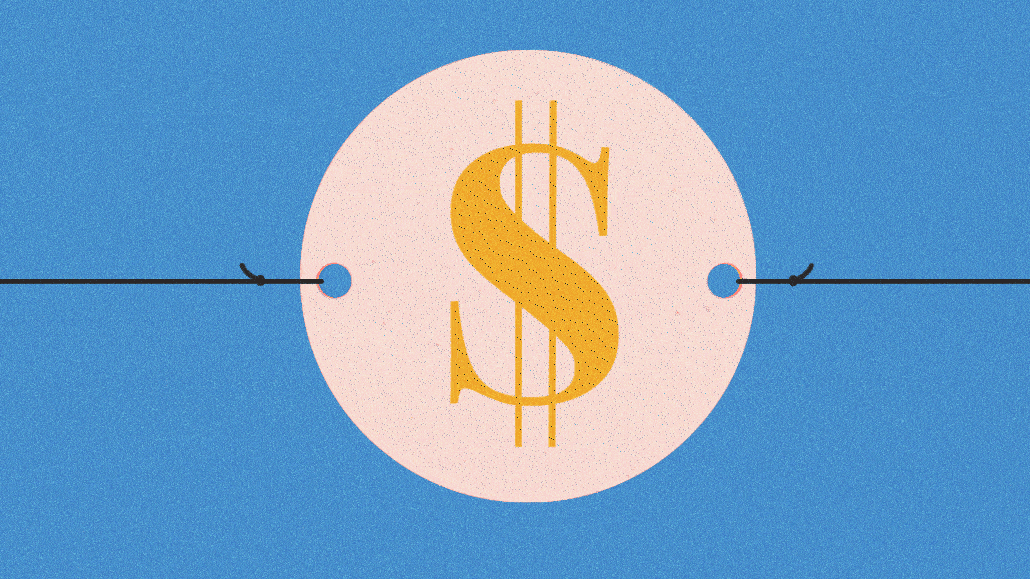Secure your place at the Digiday Media Buying Summit in Nashville, March 2-4
How the creators of ‘Bluey’ took a different marketing approach to the show’s video game moment

The creators of “Bluey” are hoping to use a new video game to bring the popular children’s cartoon to a wider audience.
Nov. 15 marked the release of “Bluey: The Videogame,” the first major console video game based on the popular Australian television show. Instead of simply adapting “Bluey” to a new medium, the game’s creators hope to use it as a marketing channel to expand the “Bluey” empire even further.
Popular television shows and movies have been adapted into video games for decades, but the new “Bluey” game differs from past adaptations in that it contains an entirely new story, rather than a beat-by-beat remake of a pre-existing “Bluey” tale. By design, players who engage with the game via Switch or PlayStation do not need any prior knowledge of “Bluey” lore to enjoy it.
“It will take you through who the main characters are, what their roles are; how they interact with each other is similar to how they interact in the show,” said Vincent Grogan, production director at Outright Games, the studio that developed the title. “If this is your first ‘Bluey’ experience, it will be a great one.”
Grogan and his colleagues at BBC Studios stressed that the primary purpose of the “Bluey” game is to entertain the show’s fans with a new story, with the marketing aspects of the launch coming as a secondary, although very welcome, outcome. “Bluey: The Videogame” is the latest example of BBC Studios’ ongoing efforts to mine the “Bluey” IP for money, a list that includes additional revenue streams such as “Bluey” merchandise and in-person themed events.
Still, BBC has put a significant effort into building a pipeline for people who encounter “Bluey” through the game to find their way over to the show, effectively making the “Bluey” game a funnel into the broader IP.
“We have really wide distribution, with the biggest broadcasts and the biggest digital platforms in the world,” said Ashwin Desai, global director for gaming and interactive at BBC Studios. “And so there’s that obvious alignment with a digital product like a video game kind of pushing through, if you’d like, to the TV experience as well.”
In some ways, the “Bluey” game launch represents the inverse of current game-to-television adaptations, such as this year’s smash hit “The Last of Us,” which introduced a popular video game series to a new audience of television viewers. As games become a more significant pillar of the entertainment landscape, the cross-pollination is beginning to move in both directions.
“This is allowing fans to interact with the brand in a different way, so from our perspective, hopefully the game will generate a lot of buzz around the show,” said BBC Studios head of games Kevin Jorge. “But it’s also something that fans will engage with in a deeper way, and something that enriches their love of the brand in a very different way as well.”
Whether it’s effective or not, the type of IP marketing pursued by BBC Studios through “Bluey: The Videogame” is not likely to supplant more popular versions of gaming advertising and marketing such as intrinsic in-game advertising any time soon. The expense and lead times of full-production video games are significantly higher than more plug-and-play forms of gaming marketing, and it’s a strategy that only works for brands with strong pre-existing intellectual property — like “Bluey,” or Lego.
“There are Lego games that have been around for decades, right? Does that help drive Lego sales? Probably — you’re increasing brand familiarity, so we definitely see it as an opportunity, but realize that it may not be for every brand,” said Samantha Lim, svp of gaming strategy and innovation at Publicis.
More in Marketing

Future of Marketing Briefing: AI’s branding problem is why marketers keep it off the label
The reputational downside is clearer than the branding upside, which makes discretion the safer strategy.

While holdcos build ‘death stars of content,’ indie creative agencies take alternative routes
Indie agencies and the holding company sector were once bound together. The Super Bowl and WPP’s latest remodeling plans show they’re heading in different directions.

How Boll & Branch leverages AI for operational and creative tasks
Boll & Branch first and foremost uses AI to manage workflows across teams.








